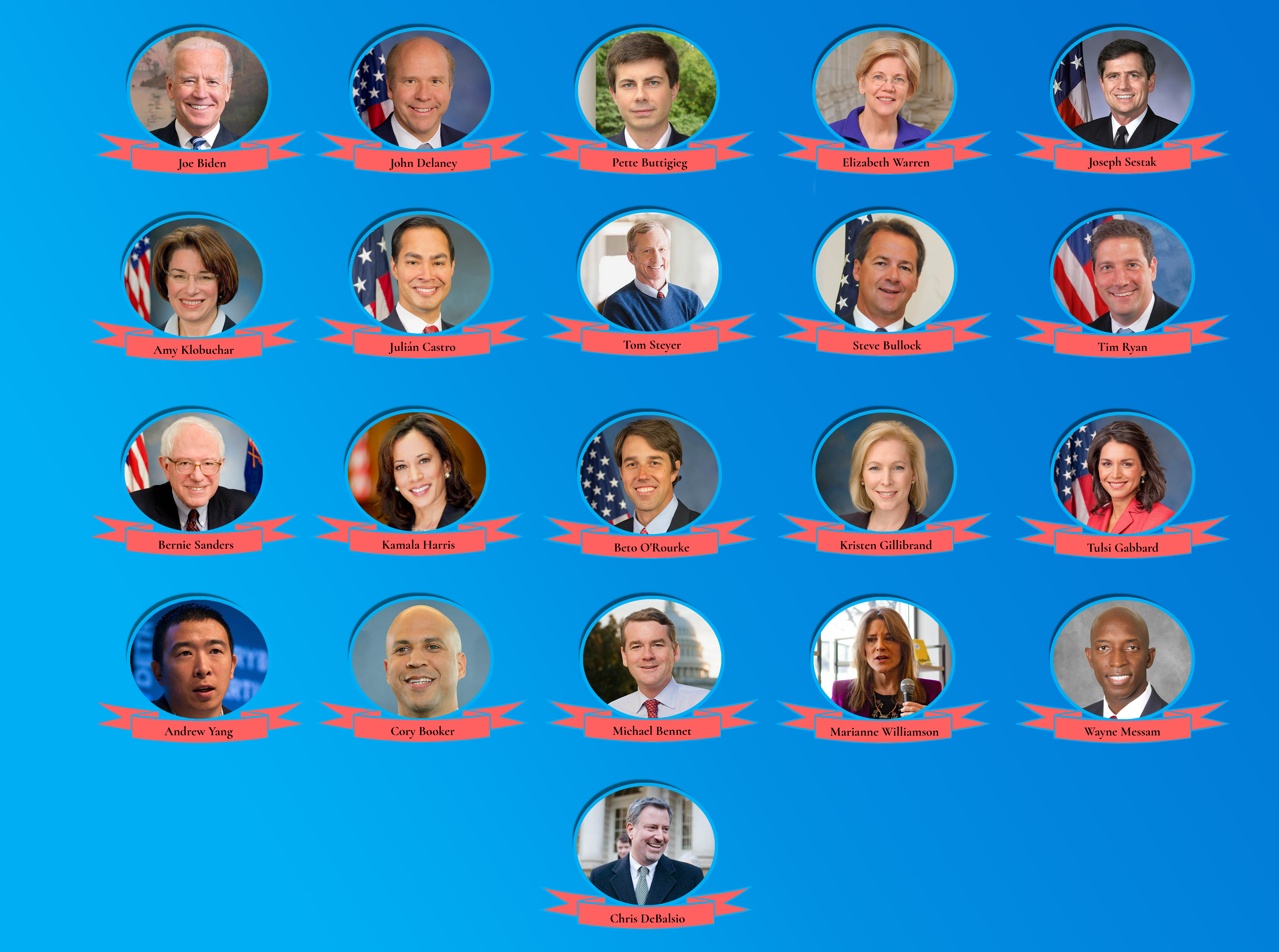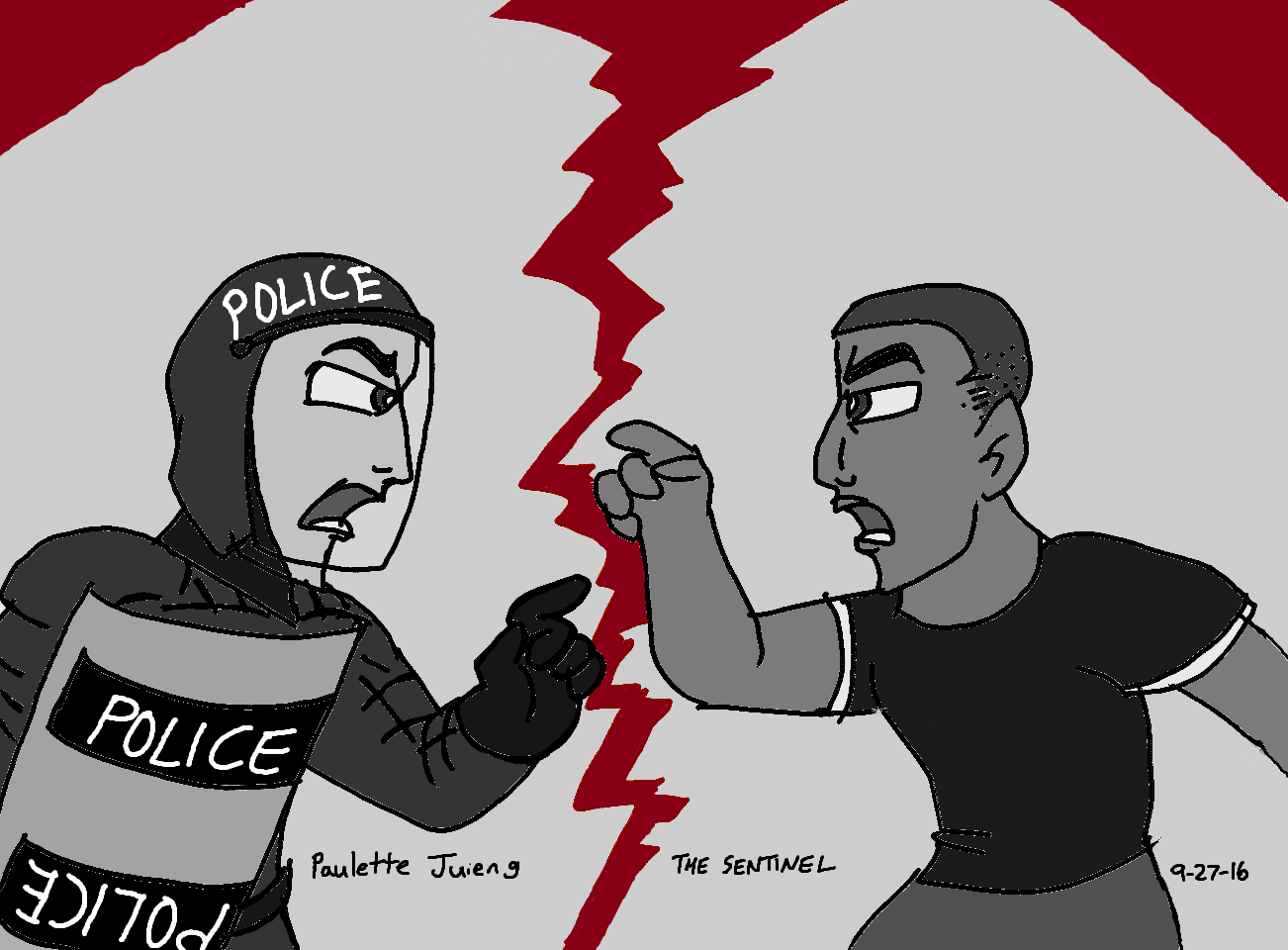With 21 candidates as of Monday, Aug. 26, bidding for the Democratic Party nomination in November, potential voters are overwhelmed with options and many have become apathetic or simply uninformed.
The candidates are very diverse, representing demographics never before displayed in a presidential campaign. Yet the diversity of candidates holds little value if the Democratic electorate does not take the time to explore all of their options.
According to an article by Fortune, only 35 percent [of registered Democrats] say they are paying close attention to the campaign. With such a small proportion of voters aware of the nominees in detail, it is unlikely that the rest of the population will make an effort with so many candidates to chose from.
“I understand that with having 21 primary candidates, it is difficult to pay attention and discern what their platforms are,” junior political science major Mary Kathryn Gentry said. “However, I also think that more candidates promote more discussion because of their varying platforms.”
Some feel that the diversity presented in the upcoming election provides Democrats the opportunity to find a candidate that truly encompasses their personal values. During the 2016 election, many moderates were alienated because they felt neither of the candidates adequately represented them.
According to a poll conducted by the BBC, of those asked about the candidates they voted for, 25 percent claimed that they disliked the opponents. In the absence of a Democratic nominee that voters felt comfortable voting for, many of these left-leaning moderates voted for Donald Trump because of their distaste for democratic nominee Hillary Clinton.
With the ticket being so wide in 2020, it is likely that once again many voters will feel the Democratic nominee will not fully encompass their personal values.
The diverse 2020 ticket has candidates ranging from radical, self-identified socialist Bernie Sanders to the more moderate Joe Biden. Unfortunately, with growing apathy and ignorance as a result of the overwhelming amount of options, it is unlikely that voter turnout in the primary election will be substantially higher than that in 2016.
According to an article from Pew Research, only 28.5 percent of estimated eligible voters voted in the Republican and Democratic presidential primaries in 2016. This was close to breaking the 2008 primary record, and yet less than 30 percent of those eligible to vote made the effort to choose a party nominee they felt portrayed them.
The sheer number of candidates available is likely to lead to even less of a turnout for the upcoming primary as it takes a significant amount of time and effort to extensively research 21 candidates.
In order to have a successful presidential election, it is necessary for the pool of eager nominees to dwindle to more reasonable numbers. If Democratic candidates continue to drop out of the race at the rate that they have been, it is likely the number of candidates will be manageable by the election in November.
However, if there are this many candidates by the primary election, people are not likely to be personally invested enough to show up and vote. All anyone can hope is that the Democratic electorate becomes more invested and involved in the months leading up to the next election.


